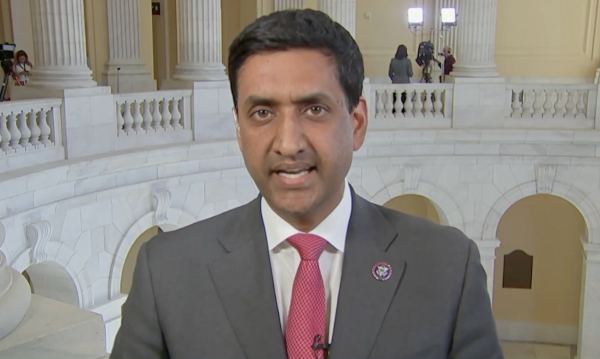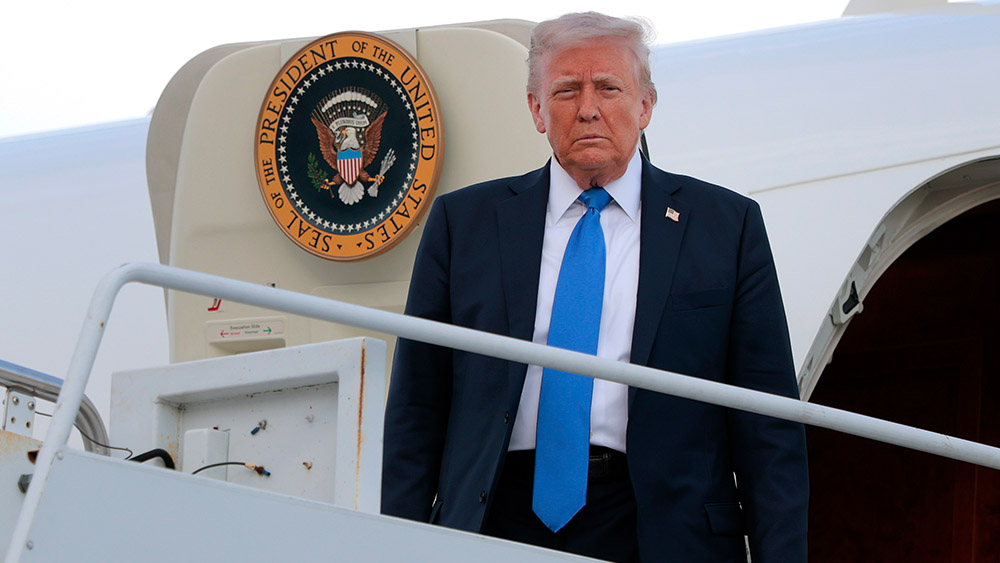 Parler
Parler Gab
Gab
- Rep. Ro Khanna (D-CA) proposed a bill codifying President Trump's executive order (EO) to lower prescription drug prices. The EO requires pharmaceutical companies to sell drugs to Americans at the "most favored nation" price – the lowest price offered globally.
- The bill aims to ensure Americans no longer pay significantly more for medications than patients in other industrialized nations, addressing long-standing price disparities.
- Khanna urged bipartisan support, framing the issue as a choice between siding with Big Pharma (which spends heavily on lobbying) or the American people – a rare area of agreement.
- Signed on May 12, Trump's EO targets inflated U.S. drug prices, with the president claiming it could reduce costs by 30 to 80 percent. Health Secretary Robert F. Kennedy Jr. praised it as a breakthrough past administrations failed to achieve.
- The policy may face legal challenges from pharmaceutical companies and logistical hurdles. But if successful, it could set a precedent for global drug price equalization and future reforms.
Trump takes on sky-high drug prices with his EO
Khanna's speech and introduction of his proposal came two days after Trump signed the aforementioned EO on Monday, May 12. The order challenges decades of inflated U.S. drug pricing, where Americans often pay five to ten times more than patients abroad for the same medications. The chief executive shared one anecdote to emphasize the importance of his order. A wealthy friend of Trump called him to complain about the price of a weight loss drug. Whereas the friend managed to purchase the drug for $88 in the United Kingdom, that same drug cost $1,300 in the United States. Trump affixed his signature to the order while flanked by Health Secretary Robert F. Kennedy Jr., who praised the EO. The secretary added that the real estate mogul achieved what many politicians – including prominent Democrats – had promised, but failed to deliver. Prior to the EO's signing at the White House, the president took to Truth Social in defense of it. According to him, the policy could slash drug prices by 30 to 80 percent. "For many years, the world wondered why prescription drugs in America were so much higher than anywhere else," Trump wrote in his Truth Social post. "There was no correct or rightful answer. [The drug] companies would say … that it was research [and] development (R&D) costs." Historically, U.S. drug pricing has been a flashpoint, with critics blaming lax regulation, patent monopolies and aggressive lobbying. Pharmaceutical firms have long justified high costs by citing R&D expenses, though studies show marketing and profits often eclipse research investments. The policy’s implementation could face hurdles, including legal battles and potential supply-chain adjustments. Khanna himself acknowledged that his proposal could be challenged in the court system, remarking that "Big Pharma will sue." But if the congressman's proposal succeeds, it may set a precedent for future reforms, forcing global price equalization. (Related: Big Pharma desperately trying to block President Trump from lowering drug prices.) Visit BigPharmaNews.com for more similar stories. Watch this Fox Business report from 2019 about the first Trump administration's proposal to allow the importation of prescription drugs from Canada. This video is from the NewsClips channel on Brighteon.com.More related stories:
Trump executive order targeting Big Pharma aims to slash drug prices by up to 80%. Trump weighs tying U.S. drug prices to cheaper global rates, sparking pharma backlash. President Trump to enact new policies to "dramatically lower" the price of prescription medication. Sources include: InfoWars.com 1 InfoWars.com 2 TruthSocial.com Brighteon.comHidden risks in the “normal” blood test: Sodium levels and heart disease
By Willow Tohi // Share
FDA forces Pfizer, Moderna to admit COVID vaccines cause lasting heart damage in young males
By Lance D Johnson // Share
Governments continue to obscure COVID-19 vaccine data amid rising concerns over excess deaths
By patricklewis // Share
Tech giant Microsoft backs EXTINCTION with its support of carbon capture programs
By ramontomeydw // Share
Germany to resume arms exports to Israel despite repeated ceasefire violations
By isabelle // Share










